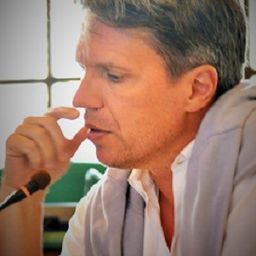L’expertise au temps de la dérégulation patrimoniale | Expertise in a time of deregulation
My Session Status
The second half of the 20th century saw the affirmation of national and international heritage administrations run by teams of experts that mutually validated each other’s knowledge and findings. The emergence of new forms of heritage, new collections and international networks related to museums, or other heritage structures, has led to the development of numerous new or reformulated specialities. In the last two decades a new ideal of heritage has gained ground, one based on communities of interpretation and localised emotions. In Europe, the Faro convention (2005, implemented in 2011) setting out the value of cultural patrimony for social development, introduced the idea of a kind of expertise specific to a given space and population. The scholarly framework that formerly validated heritage forms seems to be giving way to claims by indigenous groups, or autochthones and to be related to the affirmation of identities and memories.
Whilst some deplore the decline of former models of “objective” expertise others approve and consider the emergence of new forms of expertise, in particular collaborative initiatives, as a positive development. Yet it would be simplistic to consider that there is a clear opposition between a top down and a bottom up expertise as there are many forms of collaboration and negotiation that connect them to each other. One might add, that as scientific as public expertise may claim to be, it is of course also conditioned by ethical, political and otherwise tactical considerations, making it also circumstantial and “impure”. On the other hand, “local” activist expertise can often be tied back to official policies that also lead to the establishment of scholarly forms of connoisseurship and heritage administration. Critical research carried out from the perspective of different disciplines on the selection processes and the preservation measures taken by commissions, associations and administrations, has revealed the variety of issues at stake in the interplay between expertise and heritage making processes.
Institutions confronted with requests for restitutions have had to revise their traditional conception of expertise and respond to new expectations. Are we witnessing a kind of “deregulation” of heritage expertise? Can one distinguish between the expertise of countries of origin and that of countries of holding? To what extent is heritage susceptible to forms of folklorisation? How are they competing and how can this be negotiated? How can “disinterested” forms of expertise weigh in against economic and tourist driven factors? Inversely, how does local expertise, weigh up against international norms? Can these forms of expertise be translated from one field of action to another or are they mutually exclusive?
__
Dans la seconde moitié du XXe siècle, on a vu fonctionner une bureaucratie spécialisée d’experts nationaux et internationaux, dont les savoirs et les conclusions étaient validés par leurs pairs. L’émergence de nouveaux patrimoines, de nouvelles collections, de nouveaux réseaux internationaux - de musées et de dispositifs patrimoniaux plus ou moins étroitement définis - a semblé décliner le champ des expertises ad hoc en autant de spécialités inédites ou reconfigurées. Mais depuis le début de ce siècle l’idéal de patrimoines liés des communautés d’interprétation, et à des émotions localisées, s’est fait jour. Parmi d’autres résolutions, la convention de Faro sur la valeur du patrimoine culturel pour la société (2005, entrée en vigueur en 2011), a porté en Europe l’idée d’une expertise propre à un espace et à une population. Ainsi l’ancien cadre savant qui garantissait naguère les formes de patrimoine semble se désagréger au profit de revendications d’autochtonie, de réclamations de droits au patrimoine, d’affirmations identitaires et mémorielles particulières.
Certains déplorent le déclin des anciens modèles d’expertise « objective » tandis que d’autres se réjouissent, à l’inverse, de l’émergence d’expertises inédites, et en particulier collaboratives. Pour autant, l’opposition d’une expertise d’en haut à une expertise d’en bas est trompeuse car il existe maintes collaborations et négociations entre les deux. D’une part, les expertises publiques, pour scientifiques qu’elles se réclament, sont aussi marquées par des considérations éthiques, politiques, sinon tactiques, bref circonstancielles et « impures ». D’autre part, les expertises « localisées » et engagées les moins susceptibles a priori d’illustrer un _connoisseurship_ bureaucratico-savant sont souvent le fruit de politiques officielles destinées à les faire advenir. Les recherches critiques menées par diverses disciplines au sein des commissions, des administrations ou des associations en charge de valider des choix et des protections ont montré depuis quelques années toute les variétés de la relation de/à l’expertise et ses enjeux dans les processus de patrimonialisation.
Les institutions confrontées à des demandes de restitutions de collections ont dû réviser les anciennes expertises et répondre à la nécessité de nouvelles. Assiste–t-on à une dérégulation des expertises patrimoniales ? Y-a-t-il des expertises des pays de départ et des expertises des pays d’accueil ? Le patrimoine est-il susceptible de folksonomies ? Comment se règlent leurs éventuelles concurrences ? Que pèse une expertise « désintéressée » face aux expertises économico-touristiques ? Inversement, que pèsent les expertises locales, bien ou mal fondées, face à une norme internationale ? Y-a-t-il une traduction possible des expertises, ou s’agit-il au contraire d’expertises intraduisibles ?
Elementy podrzędne
This paper will discuss the collaborative process of the redevelopment of the Dutch state heritage shipwharf NDSM in Amsterdam into a cultural incubator: a creative hub with artist studios, theater spaces, a skatepark and other (sub)cultural facilities. This process of redevelopment, which started in the late 1990s, differed in multiple ways from conventional heritage redevelopment practices. The NDSM wharf has become an emblematic case of transformation processes initiated by the users; a...
The expansion of the heritage field and the growing place of cultural intangible heritage often can explain the emergence of new actors and new experts representing communities looking for the recognition of their cultural identities. But how can we explain this emergence in areas where a great monumental heritage seems to overshadow other forms of heritage? This paper will try to clarify this issue through the case of Picardie, a region of Northern France where we conducted a collective f...
Cette intervention se propose de contribuer aux questionnements que ce colloque se pose à l’égard du rôle de l’expertise patrimoniale. En particulier, en analysant un cas d’expertise muséologique et muséographique que l’on pourrait définir « d’artiste », celui du plasticien Mark Dion et de ses projets d’agencement pour les collections des musées. Ayant souvent travaillé pour mettre en valeur la collection et ses objets normalement « cachés » dans les dépôts (Curiosity Cabinet for ...
One dimension that is often commented on is the tension between authentic conservation and commodification. However, there are also issues around how the “landscape experience” is treated. In this paper we will discuss the difficulty of translating traditional conservation concepts, which we centre on the concept of authenticity and integrity, to the dynamic landscape contexts, and the resulting concerns over their management. Part of this is about the conflict between the preserv...
Cette communication interroge la place respective des professionnels du patrimoine et des habitants dans la construction d’un « diagnostic patrimonial » participatif, idée lancée par le Service de l’Inventaire et du Patrimoine de la région Ile-de-France (France) et ayant donné lieu à une recherche en partenariat avec une équipe de chercheurs en géographie. L’idée de l’inventaire participatif est en effet impulsée par certains professionnels de l’Inventaire au courant des années 2000, conscien...
Dans le cadre de cette communication, il s’agira d’analyser la manière dont s’articulent, ou au contraire, ne se rencontrent pas, les initiatives locales et nationales, institutionnelles et citoyennes, dans la démarche de demande d’inscription de biens sur la liste du patrimoine mondial, et les implications que les jeux d’acteurs peuvent avoir sur les conceptions mêmes du patrimoine. Notre étude portera sur l’oasis de Figuig, située dans la pointe orientale du Maroc. L’oasis constitue un e...
The inventory, in its broadest sense, can be summed up as follows: a cold accumulation and periodically updated layers of knowledge. Heritage inventories, however, do not fall within such a pure mechanics of listing. They cannot be lessened to the work of speculative classification that would find legitimacy through the increasing number of objects and the constant sedimentation of knowledge. Heritage inventories result from a process of filtering; that is, a selection based on values that...




Discussion